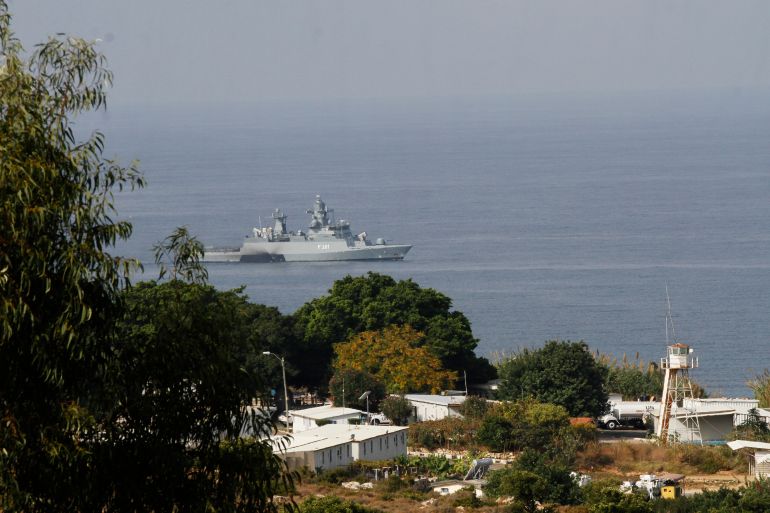Lebanon set to expand claim on disputed maritime area with Israel

Lebanon’s caretaker public works and transport minister says he signed a document expanding Lebanon’s claims in its maritime border dispute with Israel.
The amendment, announced on Monday, adds about 1,400sq km (540 square miles) to the exclusive economic zone claimed by Lebanon in its original submission to the United Nations.
Keep reading
list of 3 itemsLebanon, Israel launch talks over maritime border dispute
Can Turkey and Greece resolve their maritime dispute?
The document now needs to be signed off by Lebanon’s caretaker prime minister, minister of defence, and president ahead of submission to the United Nations for a formal claim to register the new coordinates for the area.
“I expect it will be signed as everyone, the minister of defence and the prime minister and the president are concerned about this,” Minister of Transport Michel Najjar told a news conference.
“We will not give up any inch of our homeland or a drop of its waters or an inch of its dignity.”
Negotiations between old foes Lebanon and Israel were launched in October to try to resolve the dispute about their maritime border, which has held up hydrocarbon exploration in the potentially gas-rich area.
The talks, a culmination of three years of diplomacy by Washington, have since stalled.
The negotiations were the first non-security talks to be held between the two countries, which have no diplomatic relations following decades of conflict. Resolving the border issue could pave the way for lucrative oil and gas deals on both sides.
Tensions in the Mediterranean
Israel already pumps gas from huge offshore fields, but Lebanon has yet to find commercial gas reserves in its own waters.
Israeli Energy Minister Yuval Steinitz said Lebanon’s latest move would derail the talks rather than help work towards a common solution.
“Unilateral Lebanese measures will, of course, be answered with parallel measures by Israel,” he said in a statement.
Lebanon, mired in its worst economic crisis since the 1975-1990 civil war, is looking to settle the maritime border dispute so it can press on with its offshore quest for oil and gas.
The search for hydrocarbons has already heightened tensions in the eastern Mediterranean following repeated Turkish exploration and drilling operations in waters claimed by both Cyprus and Greece.
The armed movement Hezbollah, a major force in Lebanese politics, had criticised the maritime talks.
Israel and Hezbollah last fought a war in 2006, and both sides still exchange sporadic cross-border fire.